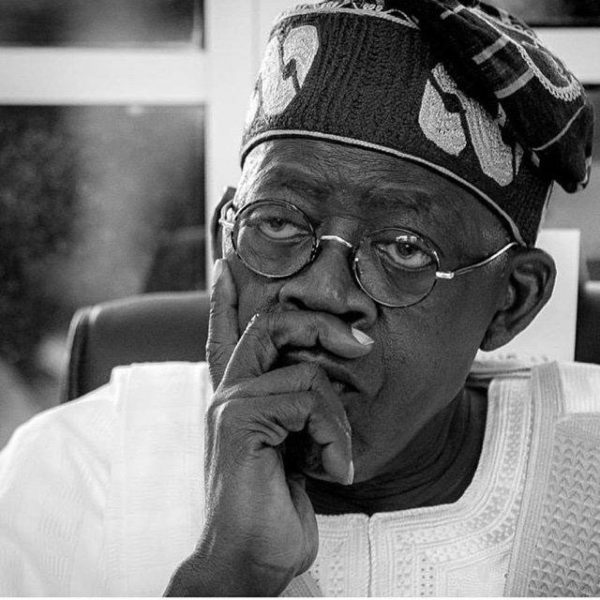“Nigeria’s political landscape is currently rife with many distractions, diverting attention from the nation’s pressing governance challenges. Among these distractions is the early political maneuvering for the 2027 elections. The surge of endorsements urging President Bola Tinubu to run for a yet-to-be-scheduled 2027 presidential election comes at an inopportune moment, as the President has not yet completed two years of his first term.
This situation is compounded by public outbursts from politicians, even within the ruling All-Progressives Congress (APC), who see it not just as a nuisance but a serious hindrance to addressing the current economic hardships.”The political landscape in Nigeria frequently exhibits a concerning level of unseriousness among a significant number of politicians. This lack of seriousness is particularly evident in how they handle the genuine and urgent needs of the populace.

Many elected officials seem to prioritize personal gain or political maneuvering over the welfare of their constituents. They have become skilled at crafting intricate narratives that serve not only to manipulate public perception but also to deflect attention away from critical issues. Rather than concentrating their efforts on tackling the real problems that citizens face daily—such as poverty, inadequate healthcare, insufficient educational resources, and deteriorating infrastructure—they invest significant resources into devising elaborate distractions.
As a result, these pressing issues often take a backseat to political posturing and empty rhetoric. This disconnect between the politicians and the realities ordinary Nigerians face reflects a broader challenge within the political system, where a culture of complacency and neglect frequently overshadows effective governance.Nigeria’s political landscape is currently rife with many distractions, diverting attention from the nation’s pressing governance challenges.
Among these distractions is the early political maneuvering for the 2027 elections. The surge of endorsements urging President Bola Tinubu to run for a yet-to-be-scheduled 2027 presidential election comes at an inopportune moment, as the President has not yet completed two years of his first term. This situation is compounded by public outbursts from politicians, even within the ruling All-Progressives Congress (APC), who see it not just as a nuisance but a serious hindrance to addressing the current economic hardships.
The premature focus on future elections is widely regarded as a diversion from addressing the current governance issues that affect Nigerians. Such distractions are not just unacceptable, but they do little to benefit the average citizen. This shift in focus raises serious concerns about the government’s ability to address the populace’s needs while navigating the complex web of political dynamics.
In the same way, Governors, Senators, and House of Assembly members who have yet to make a meaningful impact in their states are being celebrated by a hired crowd urging them to pursue candidacies in 2027, regardless of their track records. While it is normal for politicians to scheme for positions, this behavior undermines democratic principles and common sense. It casts those involved as indifferent to the needs of the people, more focused on their self-interests.
There is a time for everything and now should be a period of concerted effort to tackle the numerous challenges facing the country, especially the socio-economic issues. Unfortunately, politicians appear to act as if all is well, even as the government grapples with insecurity threats and a volatile economy.The ongoing conflict between Senator Natasha Akpoti-Uduaghan and Senate President Godswill Akpabio has sparked considerable distractions in Nigeria and raised concerns regarding its grave ramifications for governance.
In February 2025, Senator Akpoti-Uduaghan accused Senate President Akpabio of sexual harassment. In the wake of these allegations, she faced a six-month suspension from the Senate, cited for “persistent acts of misconduct,” including her refusal to sit in her designated seat, speaking without recognition, and derogatory comments about Senate leadership. This suspension has prompted a wave of public outcry, with protests organized by women’s rights groups under the rallying cry “We are all Natasha.
” Critics have asserted that the focus on this personal dispute is diverting attention from pressing national issues. In response to increasing dissatisfaction among constituents, a formal petition was initiated to recall Senator Akpoti-Uduaghan from her position in the Senate. The concerns surrounding the recall focused on her perceived demeanor and interactions with other members of the National Assembly.
Many constituents expressed worries regarding her dismissive behavior and lack of collaboration, believing these issues undermined the democratic process and hindered essential dialogue on critical matters. However, the Independent National Electoral Commission (INEC) reviewed the petition and ultimately dismissed it, citing that it did not meet constitutional requirements. The commission noted that only 43.
86% of registered voters in the senator’s constituency had signed the recall notice, falling short of the legal threshold of at least 50% participation for such a recall to be deemed valid and actionable. Consequently, the attempt to remove Senator Akpoti-Uduaghan from her position was unsuccessful due to the failure to meet this critical requirement. One must consider why Senator Akpabio, at 62, finds himself engaged in a contentious rivalry with Senator Natasha, who, at 45, could be viewed as young enough to be his daughter.
What underlying motivations might be driving this conflict? Could it be a clash of ideals, personal ambitions, or differing visions for the future of their constituents? The controversy between Akpoti-Uduaghan and Akpabio underscores the urgent need for Nigerian political leaders to resolve personal conflicts through appropriate channels, allowing the government to concentrate on policies and actions that benefit the populace.Recent discussions in the Nigerian Senate have unveiled a contentious proposal to establish an additional 31 states nationwide. This initiative has sparked significant debate, capturing the attention of lawmakers, political analysts, and citizens nationwide, each offering differing perspectives on its potential repercussions.
Proponents of the new states argue that their creation could enhance local governance, allowing communities to exert more significant influence over their own affairs. They contend that increased administrative regions would foster development through improved representation and resource allocation. Conversely, critics strongly oppose this view, suggesting that the initiative is a political maneuver intended to divert public and legislative focus from urgent economic issues that require immediate attention.
Opponents express concerns that establishing new states would impose considerable administrative costs on the nation. With Nigeria already facing financial constraints, including limited resources and soaring debt, many worry that creating additional states could further strain these resources. They argue that funds that could be directed toward urgent infrastructure repairs, job creation, and the fight against corruption might instead be diverted to meet the bureaucratic demands of new state governments.
Nigeria’s pressing question today is whether pursuing new states is a practical solution, especially in light of the numerous challenges the nation currently grapples with. To thoroughly analyze this issue, it is essential to investigate the motivations driving the push for additional states. Are these motivations grounded in a genuine need for improved administrative efficiency and a more responsive local governance structure? Or do they stem primarily from political interests, power dynamics, and the desire for a more favorable distribution of resources and influence among various groups? Examining these factors is crucial because the implications of state creation could have far-reaching consequences for Nigeria’s socio-economic landscape and overall stability.
As the nation continues to navigate economic difficulties, security threats, and ethnic tensions, any changes to its geopolitical structure must be approached with caution. Establishing new states could address local governance issues and enhance representation for marginalized populations. However, if motivated by political ambitions, such initiatives could exacerbate divisions and fuel further conflict.
Moreover, there are concerns regarding the potential socio-political implications of this proposal. Critics warn that this initiative could exacerbate existing regional inequalities and ignite tensions among Nigeria’s diverse ethnic and religious groups. Given the nation’s history of ethnic conflict and regional disparities, the creation of additional states might introduce new divisions or intensify pre-existing ones, potentially leading to increased conflict and discord.
While some view the proposal to establish 31 new states as a step towards improved local governance, a significant portion of the populace perceives it as an unwise distraction from Nigeria’s pressing economic and governance issues. Effective governance is not solely dependent on administrative boundaries; it also requires robust institutional frameworks and a commitment to inclusive development. Therefore, it is imperative that policymakers carefully weigh the potential benefits and drawbacks of this initiative as it stands to reshape the socio-political fabric of the country during these turbulent times.
In recent weeks, the Niger Delta region—a crucial hub for Nigeria’s oil and gas industry—faced a concerning wave of unexplained fires and explosions impacting its pipelines. These incidents raised significant safety, security, and environmental alarms, given the region’s heavy reliance on the oil and gas sector for its economy. The increasing occurrence of these dangerous events prompted President Bola Tinubu to take decisive action by declaring a state of emergency in Rivers State, one of the most severely affected.
This declaration marks a significant intervention by the federal government in response to what is considered a critical situation. President Tinubu also decided to suspend the sitting governor of Rivers State, a move that has ignited significant debate and controversy among political analysts, citizens, and opposition parties. The opposition, incredibly vocal in their criticism of this action, contended that the suspension may constitute an infringement on democratic principles and an overreach of executive authority.
Many critics argue that circumventing established political processes undermines the rule of law and sets a concerning precedent for governance in Nigeria, raising fears about potential abuses of power in the future.ALSO READ: Do children of politicians in power make sense?In a bid to fill the vacant seat, the president strategically appointed a retired vice admiral of the Navy as the interim administrator to manage operations in Rivers State. This decision was intended to introduce a seasoned military perspective into emergency response management, aiming for swift and effective action.
However, it has provoked significant criticism from various observers, including political commentators and civil society groups, who express concerns about the implications of military involvement in civilian governance. These events underscore Nigeria’s intricate security, governance, and civil rights dynamics. As debates intensify over the state’s balance of power, citizens and analysts remain acutely aware of the potential long-term consequences of this governmental approach.
The strategy to address this crisis is seen more as a diversion than a critical decision that could profoundly shape the country’s political landscape and governance practices for years to come.The issues above underscore the complex challenges present in Nigeria’s political landscape, where various problems often distract us from critical governance and policy-making responsibilities. Numerous civil society organizations and grassroots movements are fervently dedicated to advocating for significant improvement in quality of life, including enhanced living conditions, greater healthcare accessibility, expanded educational opportunities, and the development of essential infrastructure.
These groups strive to raise awareness and drive meaningful change to improve the well-being of individuals and communities alike. However, despite their relentless efforts, the political elite often manipulate our division by fostering mistrust and conflict among different social groups. This manipulation effectively diverts our attention away from critical issues that require collective action, creating an environment that pits us against one another and hinders our ability to unite for communal progress and shared objectives.
As a result, crises faced by ordinary Nigerians—including widespread poverty, escalating unemployment, and severe insecurity—remain largely unaddressed. The political elite perpetuates a cycle of manipulation, skillfully shaping narratives to control public discourse. This strategy not only undermines the public’s trust but also reinforces a political culture in which genuine accountability and responsiveness to the needs of the people are overlooked.
Nigerian politicians often tend to concentrate on relatively minor issues instead of addressing the pressing and significant needs that are crucial for effective governance. Once in office, many leaders become ensnared in unproductive disagreements and petty controversies, which serve only to distract them from their primary duties. These distractions frequently revolve around trivial matters—such as political rivalries, personal grievances, or symbolic gestures—that fail to bring about meaningful developments for the communities they serve.
The time and resources that could be dedicated to tackling critical challenges such as poverty alleviation, education reform, infrastructure development, and healthcare improvement are instead squandered on these inconsequential issues. Consequently, as these leaders reach the end of their typically eight-year terms, they often leave behind a disheartening legacy marked by minimal tangible progress or visible benefits for the populace. The cumulative effect of this pattern raises serious questions about the accountability of these officials.
It highlights a troubling trend where personal interests and political rivalries take precedence over the imperative to prioritize the nation’s and its citizens’ welfare. Such a scenario calls for a more profound reflection on the values guiding those in power and a critical examination of the systemic issues that allow this behavior to persist in Nigerian politics.The critical question we must confront is: what practical and effective solutions can be devised and implemented to mitigate the various distractions currently permeating Nigeria’s political landscape? These distractions manifest in several forms, including the pervasive sensationalism that dominates media coverage and the divisive political rhetoric that frequently eclipses substantive policy discussions.
In this context, it is imperative that we break free from the insidious cycle of sensational hype that consistently diverts our focus away from pressing governance issues. This entails not only recognizing the detrimental impact of these distractions but also actively working to cultivate a political environment that prioritizes meaningful dialogue. To achieve this, it is essential to encourage media outlets to engage in responsible reporting, free from sensationalism.
A media landscape devoid of sensationalism will help direct public discourse toward critical issues such as economic development, healthcare, education, and security. Furthermore, political leaders must adhere to higher standards of conduct, promoting policies that advocate unity and inclusivity rather than division. By cultivating an environment of constructive dialogue, we can tackle the underlying challenges facing Nigeria and ensure that our focus remains on the needs and aspirations of the populace.
This approach will lead to more effective governance and, ultimately, a stronger nation.Hence, we should establish strict conduct rules for senators and representatives to reduce distractions in the legislative process. These rules must clearly define the expectations for professional behavior, encompassing a range of activities from decorum during debates to adherence to established protocols for committee meetings.
Notably, the rules should specify the types of unacceptable disruptive behaviors, which may include personal attacks, the use of offensive language, and engaging in off-topic discussions that detract from the legislative agenda. To ensure these rules are effectively enforced, a transparent mechanism for reporting incidents of inappropriate conduct must be established. This could involve the creation of an independent ethics committee tasked with investigating complaints and determining the appropriate consequences for those found violating the conduct rules.
Depending on the severity of the offense, consequences may range from formal reprimands to suspension or expulsion from the chamber. Providing a clear and accessible reporting process encourages accountability and empowers members of the legislative body and the public to voice their concerns. By adopting these comprehensive strategies, Nigeria’s political landscape can transition towards a more focused, governance-centered model.
This shift will foster an environment ripe for meaningful dialogue, deliberation, and development, ultimately leading to improved services and representation for all constituents. With a commitment to these principles, elected officials can fulfill their responsibilities while cultivating a culture of respect, integrity, and progress within Nigeria’s political framework.Rev.
Ma, S.J., is a Jesuit Catholic priest of the North West Africa Province of the Society of Jesus.
He writes from Abuja, FCT. The post Nigeria’s Political Landscape Brewing Distractions appeared first on National Daily Newspaper..
Top

Nigeria’s Political Landscape Brewing Distractions

“Nigeria’s political landscape is currently rife with many distractions, diverting attention from the nation’s pressing governance challenges. Among these distractions is the early political maneuvering for the 2027 elections. The surge of endorsements urging President Bola Tinubu to run for a yet-to-be-scheduled 2027 presidential election comes at an inopportune moment, as the President has [...]The post Nigeria’s Political Landscape Brewing Distractions appeared first on National Daily Newspaper.











-1745121369054_v.webp)